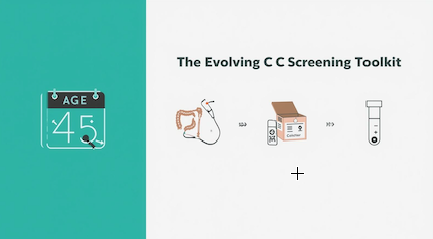The Next Frontier in Diabetes Care: Once-Weekly Basal Insulin is on the Horizon!
- OliveHealth

- Oct 25
- 3 min read
by Dr. Ed Fuentes

For over a century, insulin has been a life-saving medication for millions managing diabetes. Yet, for all its power, one persistent challenge has remained: the daily burden of injections. Imagine if you could reduce your basal insulin injections from 365 times a year to just 52. That future is closer than you think, thanks to exciting developments in once-weekly basal insulins.
A Century of Progress: From Daily Shots to Weekly Convenience
When insulin was first discovered in 1922, it revolutionized diabetes treatment. Over the decades, scientists have continually refined insulin, leading to longer-acting versions through clever molecular manipulation. The goal has always been to provide steady, reliable background insulin with minimal fuss.
We've come a long way since the first long-acting insulin in 1950 (which caused troublesome "stacking" of doses, leading to unpredictable hypoglycemia). Today's leading long-acting basal insulins, like glargine U-300 (Toujeo) and degludec (Tresiba), offer excellent 24-hour coverage with low variability. But even these require a daily injection.
This daily routine, while manageable for many, can be a barrier. It contributes to treatment fatigue, missed doses, and a general reluctance to start insulin therapy among those with Type 2 diabetes. That's where the next generation of insulin comes in.
The Rise of Once-Weekly Basal Insulins: Icodec and Efsitora Alfa
Two investigational insulins, insulin icodec (Ico) and insulin efsitora alfa (Efs), are leading the charge towards true once-weekly basal insulin. These innovative formulations are designed to maintain stable blood sugar control with just one shot per week.
Insulin Icodec (Novo Nordisk): The Albumin Binder
Icodec is an ultra-long-acting insulin analogue engineered to bind strongly to albumin, a protein in your blood. Think of albumin as a slow-release sponge, gradually releasing active insulin into your system over an impressive eight-day half-life.
Clinical Trials (ONWARDS Program): Phase 3 trials rigorously compared icodec to daily basal insulins in various groups of patients with Type 2 diabetes.
Efficacy: Icodec consistently showed a greater reduction in HbA1c (your average blood sugar) in most studies, demonstrating its power in controlling blood glucose.
Hypoglycemia: While numerically slightly higher in some groups, the rates of hypoglycemia (low blood sugar) were generally very low and comparable in more intensive regimens. Importantly, studies suggest icodec maintains your body's natural counter-regulatory response to hypoglycemia, potentially offering a protective effect.
Insulin Efsitora Alfa (Eli Lilly): The Fc-Fusion Innovation
Efsitora alfa takes a different, highly innovative approach. It's a large molecule that fuses insulin with the Fc region of an antibody. This Fc-fusion technology essentially "hacks" your body's natural antibody recycling system, giving efsitora alfa an incredibly long half-life and very low variability.
Clinical Trials (QUINT Program): Phase 3 trials matched efsitora alfa against daily basal insulins.
Efficacy: Efsitora alfa demonstrated a similar reduction in HbA1c compared to daily degludec, proving its effectiveness.
Safety: Rates of serious adverse events were comparable to daily insulins, though some studies noted slightly higher rates of allergic or injection site reactions with efsitora alfa.
Practicalities: Dosing and What to Expect
Moving to a once-weekly injection regimen does come with some unique considerations:
Loading Dose: Due to their ultra-long action (and thus longer time to reach steady levels in the body), a loading dose will likely be necessary. For icodec, this might involve a 50% extra dose initially, while efsitora alfa might start with three times the usual weekly dose. This ensures you reach stable, effective insulin levels within 3-4 weeks.
Simplified Titration: Expect simple, evidence-based titration (adjusting your dose) based on just two weekly blood glucose readings, potentially guided by smart device apps.
The Future of Convenience and Control
The development of once-weekly basal insulins like icodec and efsitora alfa represents a monumental leap forward. By drastically reducing injection frequency, these insulins promise to:
Ease the burden of daily management.
Improve adherence to treatment.
Make starting insulin therapy less intimidating.
For millions living with Type 2 diabetes, a once-weekly basal insulin could be a powerful new tool, simplifying their routine and paving the way for better long-term health outcomes. The journey from daily shots to weekly convenience is almost complete, heralding a new era of diabetes care!




Comments